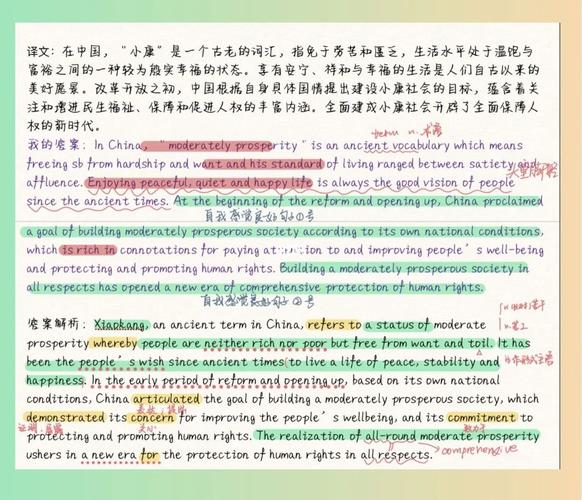Translating contemporary online literature from Chinese to English can be a challenging yet rewarding task. Online literature, also known as web novels or web fiction, has gained immense popularity in China in recent years, with a wide range of genres and styles being explored by talented writers. When translating such works, it is important to not only convey the literal meaning of the text but also capture the nuances, cultural references, and emotions that are embedded in the original writing.

1. Cultural Differences: Chinese online literature often contains cultural references, idioms, and wordplay that may not have direct equivalents in English. Translators need to find creative ways to convey these cultural elements while ensuring the text remains accessible to English-speaking readers.
2. Genre Specific Terminology: Different genres of online literature, such as fantasy, romance, or science fiction, may have their own set of terminology and world-building elements. Translators must be familiar with these genre conventions to accurately convey the author's intentions.
3. Internet Slang and Trends: Online literature often reflects current internet slang and trends, which can quickly become outdated. Translators need to strike a balance between staying true to the original text and making it relevant to English-speaking audiences.
1. Transcreation: In cases where direct translation may not fully capture the essence of the original text, transcreation can be used to adapt the content creatively while preserving the author's voice and style.
2. Collaboration: Working closely with the author or editor can provide valuable insights into the cultural context and intended meaning behind the text, ensuring a more accurate translation.
3. Research: Translators should conduct thorough research on the genre, cultural references, and linguistic nuances present in the text to provide a more nuanced and accurate translation.
1. Stay True to the Author's Voice: While it is important to make the text accessible to English-speaking readers, it is equally crucial to preserve the author's unique style and voice in the translation.
2. Seek Feedback: Getting feedback from beta readers or editors who are familiar with both languages can help identify any potential issues or areas for improvement in the translation.
3. Continuous Learning: Keep abreast of current trends in both Chinese and English online literature to ensure that your translations remain relevant and engaging to readers.
Translating contemporary online literature requires a deep understanding of both the source and target languages, as well as a keen awareness of cultural nuances and literary styles. By employing the right strategies and guidelines, translators can effectively bridge the gap between Chinese online literature and English-speaking audiences, bringing these captivating stories to a wider readership.
文章已关闭评论!
2024-12-23 15:01:23
2024-12-23 14:01:18
2024-12-23 13:01:10
2024-12-23 12:01:11
2024-12-23 11:00:54
2024-12-23 10:00:42
2024-12-23 09:00:39
2024-12-23 08:00:29